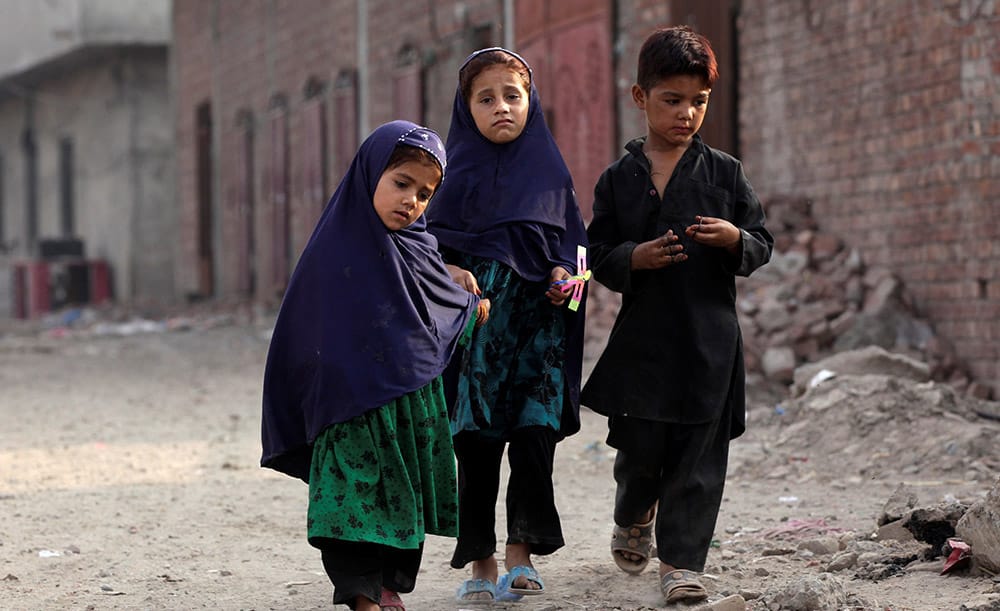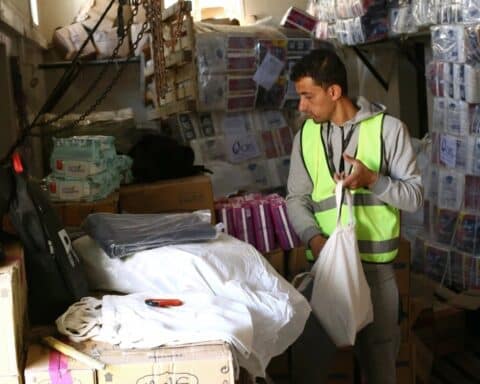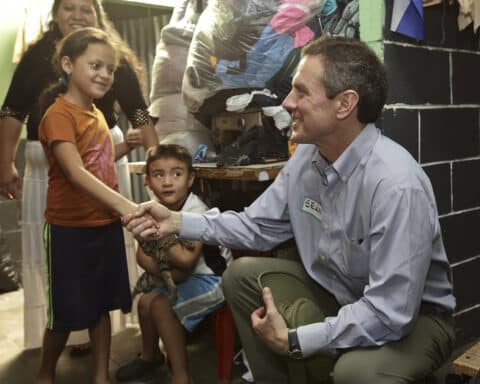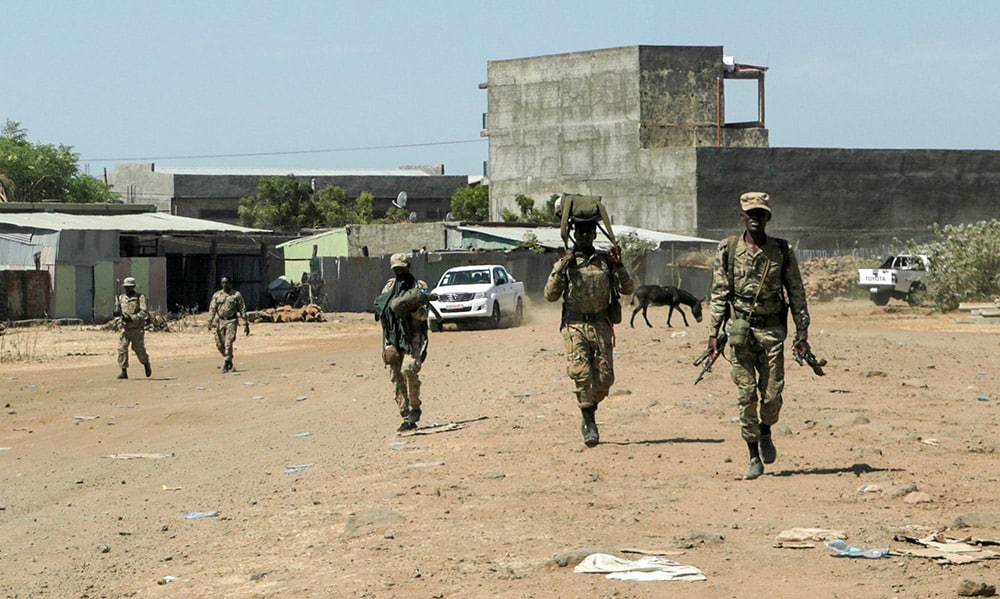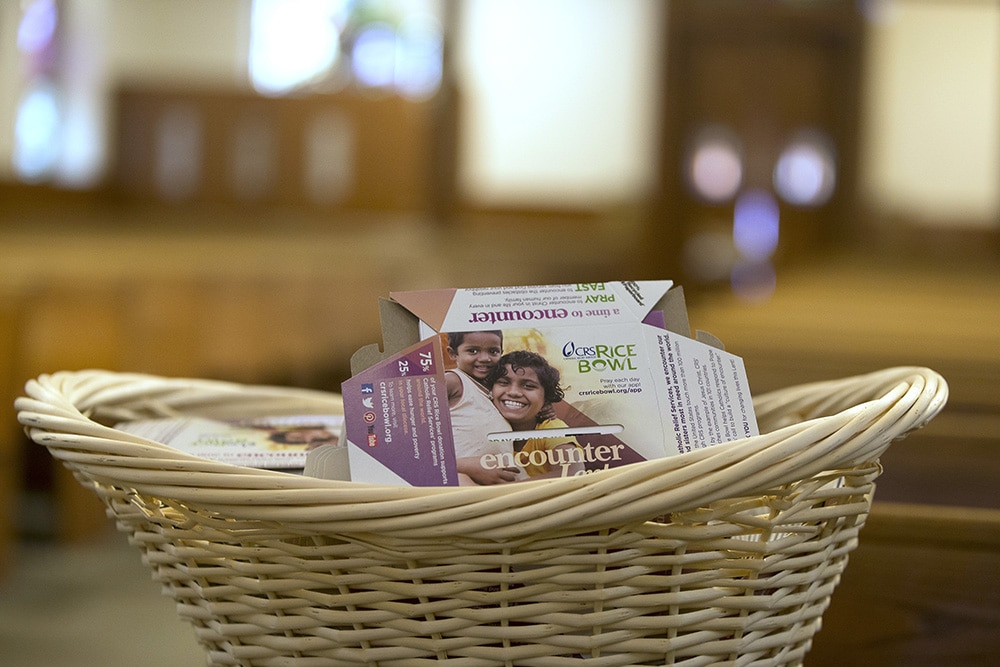As people are forced to stay home amid the increasing spread of the coronavirus, we are facing an unprecedented challenge to balance isolation and empathy. Americans are united with billions of people around the world, in developing and affluent countries alike, who face the same fears about their health, livelihoods and dramatic restrictions.
In a crisis, it’s easy to retreat into self-protection. In the coronavirus crisis, isolation is even justified. Short term, we must keep our distance from each other. But long term, this crisis can bring the human family closer together. We’re hunkering down not just to protect ourselves, but to prevent the spread to others — an act of self-care and also for the common good.
We often see acts of self-sacrifice during crises. People step up to help a neighbor in need. They band together to protect others. People create shared global rituals that illustrate our solidarity. And as grocery shelves are emptying out, we can even come to feel for millions of people who have no water to wash their hands and who lack other basic necessities of life. As our own children must stay home from school, we can empathize with millions of children who have no access to education. As unemployment applications rise here, we can sympathize with our brothers and sisters who migrate out of desperation for work and hope.
For many humanitarian organizations assisting the most vulnerable in our own communities and around the world, the pandemic has forced us to restrict our movements. Practically and morally speaking, that is antithetical to the mission of Catholic Relief Services — reaching out to those in need, responding to disaster, poverty and conflict around the globe.
We must keep our staff safe. But we also must find ways to help vulnerable people cope in the pandemic — such as those living in displacement camps in Herat Province, Afghanistan. The province borders Iran, where confirmed cases of the new coronavirus are soaring. After China and Italy, Iran is the biggest source of cross-border infections of the virus. Because the price of household goods is surging during this crisis, we’re distributing 60,000 bars of free hand soap and have launched a low-cost education effort to reinforce the importance of washing hands and taking other hygiene precautions. We know that men in this Muslim country usually wash before prayers — five times a day. We’re focusing our education to make sure women and children take the same precautions. We’re distributing hygiene kits directly to more than 6,000 students and teachers on the outskirts of Herat City as well as in rural villages.
At least, this part of Afghanistan has access to water. In many arid areas of the world, people (usually women) have to tote drinking water in jerry cans or other containers on top of their heads for miles from a water source. Under those circumstances, it’s hard to justify using any of the precious water for handwashing. But coronavirus likely has spread or will spread to those villages, too. We work with village leaders to help us carry the message of handwashing and hygiene.
Good hygiene is critical in developing countries, because health systems are often too weak to slow the spread of disease. Afghanistan’s health system, for instance, is no match for the pandemic, a casualty of its decades-long conflict. The Global Health Security Index lists Afghanistan 77th out of 80 countries for its ability to detect and report on major disease outbreaks. The country has insufficient resources for monitoring and testing.
Another challenge in Afghanistan is extended families gather for large meals of up to 20 people. They sometimes share plates of food. It’s also typical for people to shake hands and kiss each other on the cheek in greeting. What was merely customary only weeks ago in our world is suddenly unsafe. Education is the only defense against disease in these places.
The United States must also create a balance between isolation and empathy. We thank Congress for emergency appropriations, a small amount of which helps the COVID-19 response overseas. We hope these funds can be used nimbly and flexibly. Technology and testing facilities are critical, but some of the money should be used for education and similar low-cost containment strategies. Our Afghanistan education program costs less than $50,000 to reach 1 million people.
Hunker down we must, but we also must find ways to continue to care for those with limited means.
Sean Callahan is president and CEO of Catholic Relief Services.

